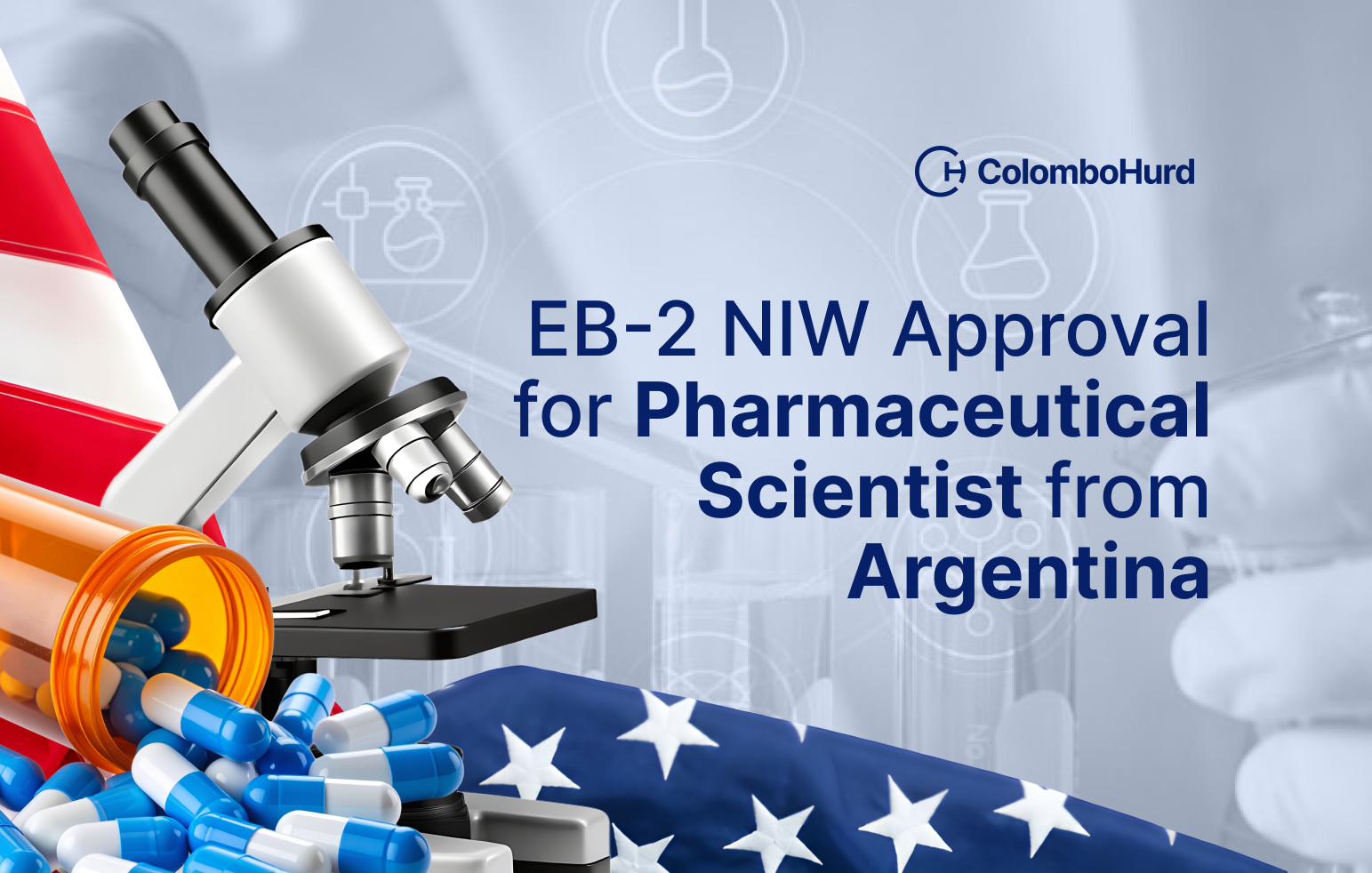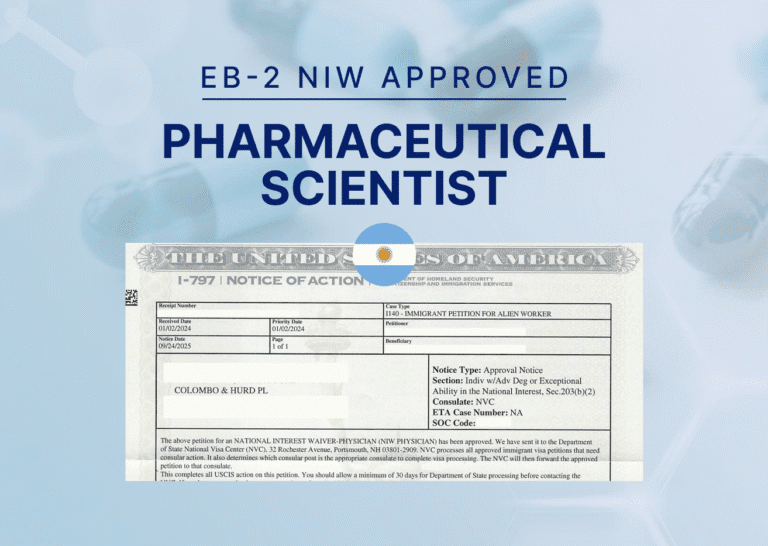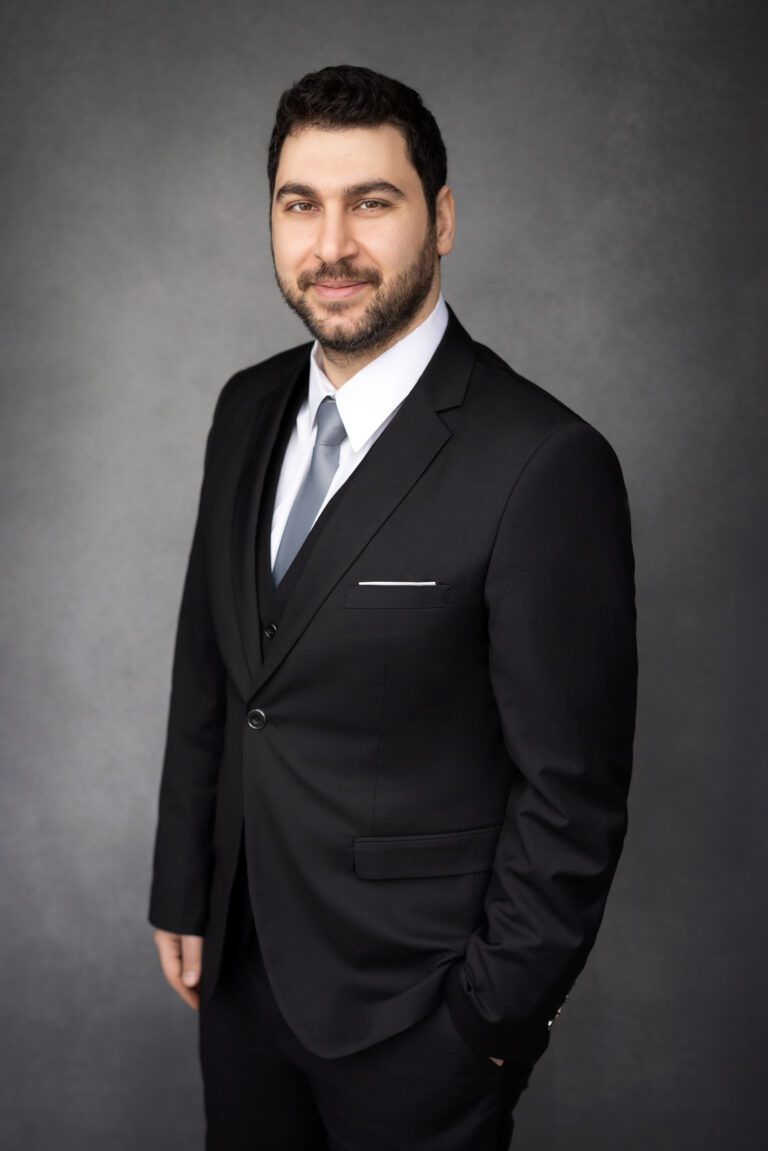Pharmaceutical Scientist
Adverse drug reactions send thousands of people to emergency rooms every year. As a result, the demand for safe, natural supplements continues to rise. One accomplished Argentine scientist is actively addressing this urgent need. She is developing plant-based vitamin supplements from Momordica charantia L., a nutrient-rich vine with well-documented health benefits.
The EB-2 National Interest Waiver (NIW) provides innovators like her with a unique pathway to the United States. Specifically, this process removes the lengthy labor certification step when their work benefits both public health and the national interest.
At Colombo & Hurd, Attorney Salvatore Picataggio managed the initial petition filing. Later, Attorney Nizar Kafrouni carefully guided the RFE response. Together, their combined efforts created a strong strategy that overcame USCIS concerns and secured approval. When the petition was approved on September 24, 2025, it opened the door to advancing innovation aimed at improving health outcomes and reducing healthcare costs.

Driving Safer, Natural Health Solutions
In a laboratory in Argentina, a pharmaceutical scientist devoted years to studying a plant with extraordinary potential: Momordica charantia L. Known locally for its medicinal uses, this climbing vine is rich in vitamins, minerals, antioxidants, and bioactive compounds. Its benefits include blood sugar regulation, as well as anti-inflammatory and antimicrobial effects.
The researcher holds a professor degree in Chemistry, Physics, and Mereology, evaluated as the equivalent of a Doctor of Pharmacy in the United States. This background combines deep academic training with practical expertise in pharmaceutical sciences and natural product development. Over more than a decade, she has advanced pharmaceutical education by designing laboratory programs, mentoring future pharmacists, and publishing research on natural compounds as safer, more effective alternatives to synthetic drugs.
Her vision is ambitious and practical: to develop plant-based vitamin supplements that reduce side effects from synthetic products. These supplements also support preventive care and help lower healthcare costs caused by adverse drug reactions.
Attorney Nizar Kafrouni confirmed that the scientist’s academic foundation and unique research made her an excellent candidate. He also emphasized that early-stage researchers with innovative approaches can succeed under the EB-2 NIW process, even when traditional citation metrics, such as Google Scholar, are limited. By aligning the client’s work with U.S. public health priorities, the team clearly demonstrated her value to the national interest.
When Pioneering Natural Supplements Needed Proof of U.S. Impact
Fortunately, USCIS had already recognized that the client’s research carried both substantial merit and national importance. However, after this initial filling, USCIS issued a Request for Evidence (RFE) to question the remaining prongs of the Matter of Dhanasar framework.
The RFE raised two main concerns. First, whether the scientist was truly well-positioned to advance her proposed endeavor in the United States (Prong 2). Second, whether granting the waiver would provide enough benefit to the national interest to justify removing the job offer requirement (Prong 3).
“The officer questioned the impact of the research, demanding clear proof that the client’s work advances the field and contributes uniquely,” confirmed Attorney Kafrouni.
USCIS noted that much of the supporting evidence emphasized academic qualifications and requested additional documentation. The agency sought a clearer plan and further validation to demonstrate the researcher’s ability to independently advance her proposed work.
“For research-based petitions, USCIS often looks for measurable indicators of influence. When those indicators are limited, we need to show impact in other ways,” explained Mr. Kafrouni.
In immigration cases, one common metric is Google Scholar citations, which reflect how often other researchers have referenced a scholar’s work. While a high citation count can suggest broad influence, early-stage researchers may not yet have extensive citations even when their contributions are significant. In these cases, alternative evidence becomes essential to demonstrate real-world value.
A Custom EB-2 NIW Strategy for an Early-Stage Researcher
In response to the RFE, Mr. Kafrouni’s legal team designed a customized strategy that addressed every issue raised by USCIS. The response emphasized the originality of the scientist’s research methods and her concrete plan to develop natural supplements in the United States.
To reinforce Prong 2, the team highlighted her decade of leadership in pharmaceutical sciences, including teaching, mentoring, and research in pharmacognosy and pharmacotechnics. A revised business and research plan became central to the filing. The client worked closely with the team, providing documents, updating drafts, and accepting edits that made the plan both practical and persuasive.
Mr. Kafrouni noted: “The client’s responsiveness was essential. Because she collaborated so closely with us, we were able to strengthen the plan and address every issue raised by USCIS.”
Letters of recommendation further reinforced the case. Independent experts emphasized the originality of her research techniques and directly referenced key Executive Orders, underscoring the urgency and national importance of her work.
To strengthen Prong 3, the team connected her endeavor to U.S. health policy. The response demonstrated alignment with Healthy People 2030 and the FDA Nutrition Innovation Strategy, both of which call for safer, innovative approaches to preventive health. It also referenced Executive Order 14212, which launched the Make America Healthy Again Commission to address rising rates of cancer, asthma, and obesity through stronger public health policy.
In addition, the filing cited Executive Order 14293, which directs agencies to prioritize the domestic production of medicines and active pharmaceutical ingredients by streamlining regulatory approval for new facilities. By linking her work to these initiatives, the team showed that her research supported preventive health and advanced U.S. competitiveness in the nutraceutical sector.
See if you qualify
Get your free EB-2 NIW visa profile evaluation today.
USCIS Approval Secured on September 24, 2025
USCIS approved the EB-2 NIW petition, highlighting both the value of teamwork at Colombo & Hurd and the strength of the client’s innovative plan. The decision also recognized the client’s project to develop natural, plant-based vitamin supplements as a direct contribution to U.S. health priorities and economic competitiveness.
The approval allows the scientist to continue her work in the United States, expanding her studies on Momordica charantia L. and introducing safer, more affordable alternatives to synthetic supplements. Her research has the potential to reduce adverse drug reactions, strengthen preventive care, and lower healthcare costs.
“This case shows how a strong plan, client cooperation, and alignment with U.S. priorities can lead to approval. It also proves that early-stage researchers with innovative ideas can succeed under the EB-2 NIW framework,” Attorney Nizar Kafrouni reflected on the outcome.
Final Thoughts from the Attorney
The client’s proactive cooperation played a vital role. By providing documents promptly, accepting edits, and working closely with the legal team, she helped accelerate progress and improve the quality of the submission.
This case also offers a broader lesson for future clients. Early-stage researchers without extensive citation records can still succeed under the EB-2 NIW process when guided by a tailored legal strategy. With creative use of evidence, alignment to U.S. health policies, and strong collaboration, even those with limited traditional indicators can prove their national importance and achieve approval.
If you would like to explore whether an EB-2 NIW could support your own path to the United States, we offer a free evaluation here.
“This case shows how a strong plan, client cooperation, and alignment with U.S. priorities can lead to approval. It also proves that early-stage researchers with innovative ideas can succeed under the EB-2 NIW framework”


